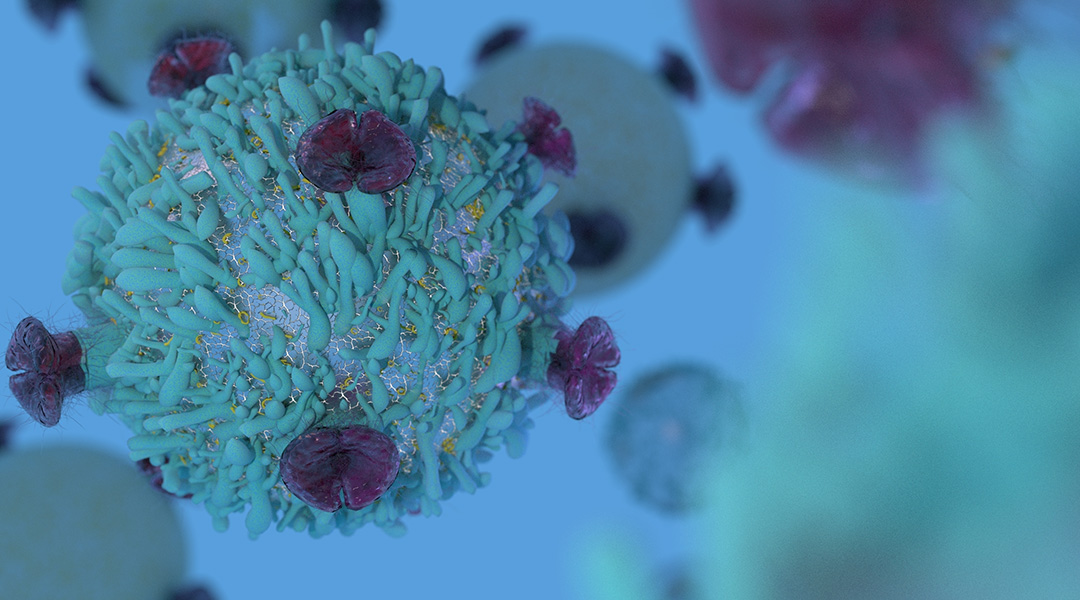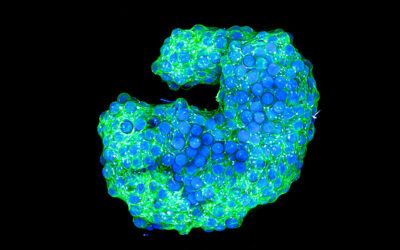Immunotherapy uses the body’s natural defense system to selectively target cancer cells, mitigating many adverse side effects associated with traditional treatment options, such as radiation therapy and chemotherapy.
In Small, Dr. Youli Zu from the Department of Pathology and Genomic Medicine at Houston Methodist Hospital and his research team report an innovative approach for cell-specific adaptive immunotherapy using natural killer (NK) cells.
In the study, aptamer-engineered NK cells were generated by anchoring oligonucleotide aptamers on the NK cell surface via biophysical intercalation into the cell membrane to render NK cells with target specificity.
The preparation process is simple, involving a single-step, 30-minute reaction in which NK cells are simply incubated with aptamer-anchoring structures under physiological conditions.
Confocal microscopy revealed intact morphology of the formed aptamer-engineered NK cells with fluorescent signal derived from the surface-anchored aptamers.
Guided by surface-anchored aptamers, aptamer-engineered NK cells were shown to specifically bind to lymphoma cells, and fluorescence microscopy confirmed cluster formation between the two.
In comparison to parental NK cells, aptamer-engineered NK cells were shown to trigger higher rates of apoptosis and death in target lymphoma cells, with greater enhancement in treatments at lower ratios.
As aptamer-anchor structures are both biocompatible and biodegradable, the resultant aptamer-engineered NK cells will have minimal risk for clinical use and are suitable for fast-acting and personalized immunotherapy.

















